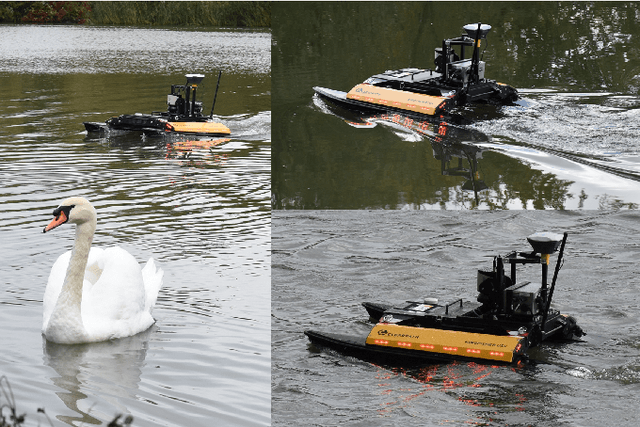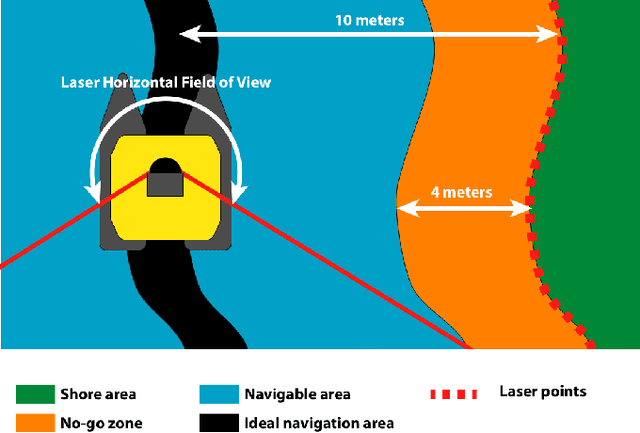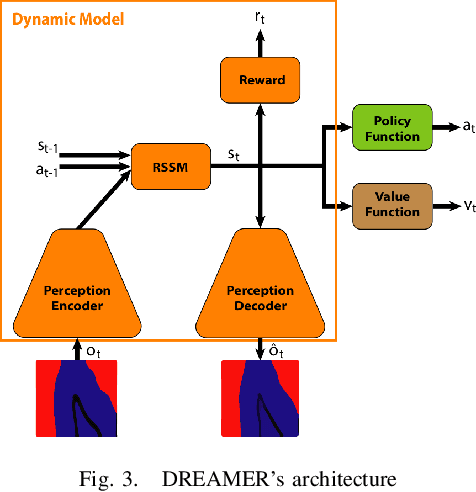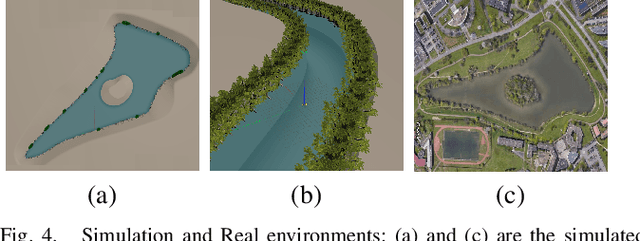How To Train Your HERON
Paper and Code
Feb 20, 2021



In this paper we apply Deep Reinforcement Learning (Deep RL) and Domain Randomization to solve a navigation task in a natural environment relying solely on a 2D laser scanner. We train a model-based RL agent in simulation to follow lake and river shores and apply it on a real Unmanned Surface Vehicle in a zero-shot setup. We demonstrate that even though the agent has not been trained in the real world, it can fulfill its task successfully and adapt to changes in the robot's environment and dynamics. Finally, we show that the RL agent is more robust, faster, and more accurate than a state-aware Model-Predictive-Controller.
 Add to Chrome
Add to Chrome Add to Firefox
Add to Firefox Add to Edge
Add to Edge